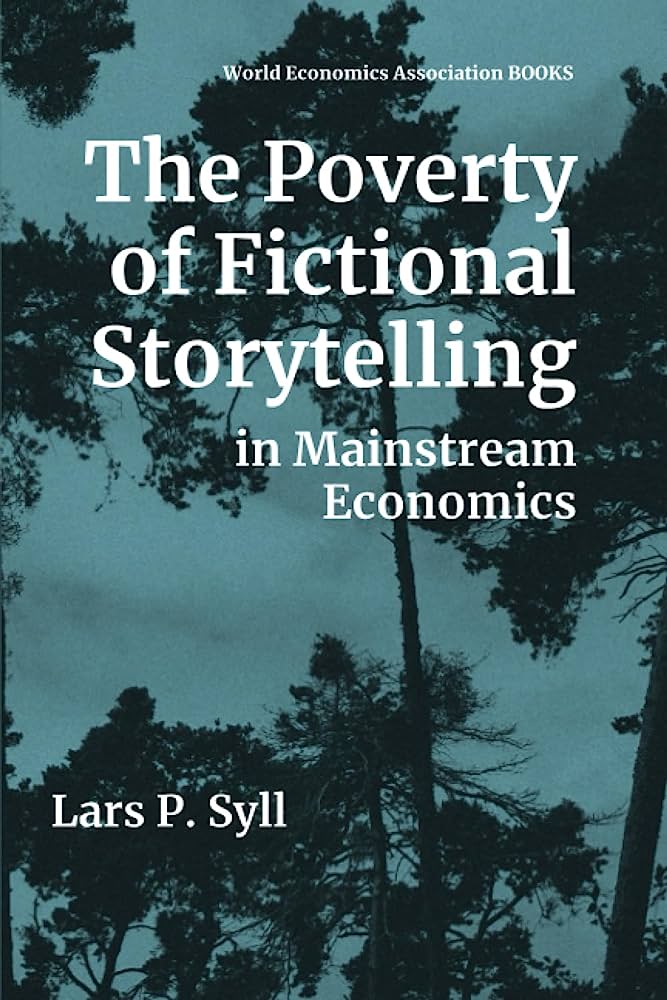From Lars Syll [Jevons] is a man of some ability, but he seems to me to have a mania for encumbering questions with useless complications, and with a notation implying the existence of greater precision in the data than the questions admit of. John Stuart Mill Fixation on constructing models — “implying the existence of greater precision in the data than the questions admit of” — showing the certainty of logical entailment — realiter simply collapsing the necessary ontological gap between model and reality — has since the days of Jevons and the marginalist revolution been detrimental to the development of a relevant and realist economics. Insisting on formalistic (mathematical) modelling forces the economist to give up on realism and substitute axiomatics for real-world relevance. The
Topics:
Lars Pålsson Syll considers the following as important: Uncategorized
This could be interesting, too:
tom writes The Ukraine war and Europe’s deepening march of folly
Stavros Mavroudeas writes CfP of Marxist Macroeconomic Modelling workgroup – 18th WAPE Forum, Istanbul August 6-8, 2025
Lars Pålsson Syll writes The pretence-of-knowledge syndrome
Dean Baker writes Crypto and Donald Trump’s strategic baseball card reserve
from Lars Syll
[Jevons] is a man of some ability, but he seems to me to have a mania for encumbering questions with useless complications, and with a notation implying the existence of greater precision in the data than the questions admit of.
Fixation on constructing models — “implying the existence of greater precision in the data than the questions admit of” — showing the certainty of logical entailment — realiter simply collapsing the necessary ontological gap between model and reality — has since the days of Jevons and the marginalist revolution been detrimental to the development of a relevant and realist economics. Insisting on formalistic (mathematical) modelling forces the economist to give up on realism and substitute axiomatics for real-world relevance. The price for rigour and precision is far too high for anyone who is ultimately interested in using economics to pose and (hopefully) answer real-world questions and problems.
 This deductivist orientation is the main reason behind the difficulty that mainstream economics has in terms of understanding, explaining, and predicting what takes place in our societies. But it has also given mainstream economics much of its discursive power — at least as long as no one starts asking tough questions on the veracity of — and justification for — the assumptions on which the deductivist foundation is erected. Asking these questions is an important ingredient in a sustained critical effort at showing how nonsensical the embellishing of a smorgasbord of models is founded on wanting (and often hidden) methodological foundations.
This deductivist orientation is the main reason behind the difficulty that mainstream economics has in terms of understanding, explaining, and predicting what takes place in our societies. But it has also given mainstream economics much of its discursive power — at least as long as no one starts asking tough questions on the veracity of — and justification for — the assumptions on which the deductivist foundation is erected. Asking these questions is an important ingredient in a sustained critical effort at showing how nonsensical the embellishing of a smorgasbord of models is founded on wanting (and often hidden) methodological foundations.
The mathematical-deductivist straitjacket used in mainstream economics presupposes atomistic closed systems — i.e., something that we find very little of in the real world, a world significantly at odds with an (implicitly) assumed logic world where deductive entailment rules the roost. Ultimately then, the failings of modern mainstream economics have its root in a deficient ontology. The kind of formal-analytical and axiomatic-deductive mathematical modelling that makes up the core of mainstream economics is hard to make compatible with a real-world ontology. It is also the reason why so many critics find mainstream economic analysis patently and utterly unrealistic and irrelevant.
If we want theories and models to confront reality, there are obvious limits to what can be said rigorously in economics. In the deductivist approach, model consistency trumps coherence with the real world. That is surely getting the priorities wrong. Creating models for their own sake is not an acceptable scientific aspiration — impressive-looking formal-deductive (mathematical) models should never be mistaken for truth.
To construct and use an economic model you have to start by establishing that the phenomena modeled are ontologically compatible with the model. The rigour and precision in models have a devastatingly important trade-off: the higher the level of rigour and precision, the smaller the range of real-world applications. So the more mainstream economists insist on formal logic validity, the less they have to say about the real world. And to think we solve the problem by reforms to mathematical modelling is like looking for a spoon when what is needed is a knife.
